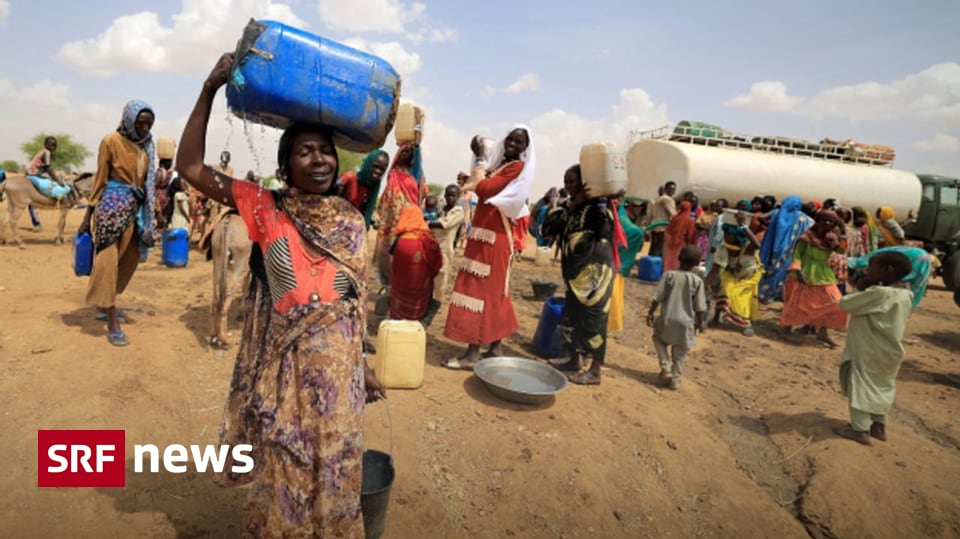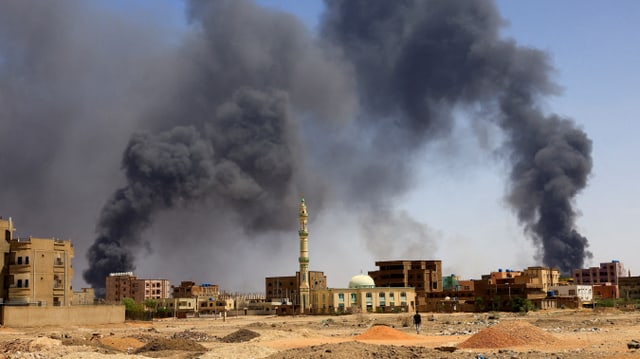
War, destruction and suffering continue unabated. Even the UN Human Rights Council can do little about it.
The current figures alone are frightening: more than 750 people have died and more than 5,000 have been injured in fighting in Sudan since mid-April.
700,000 people have left the country, and the UN expects 800,000 refugees from Sudan to enter neighboring countries in the coming weeks. Most of them are very poor and shaken by internal conflicts: South Sudan, Libya, Central Africa and Chad.
UN about “catastrophe”
UN Human Rights Commissioner Volker Dürk speaks of a “catastrophe” at a special session of the UN Human Rights Council. Two generals, Sudanese army chief Abdelfattah al-Burhan and rebel general Muhammad Hamdan Tagalo, were equally responsible for the bloodshed.
They are trampling on international humanitarian law: “Both, despite great diplomatic efforts, are not even willing to discuss an end to violence and peace.”
Great Britain’s Development Minister Andrew Mitchell said the UN Human Rights Council “must unanimously express its horror at the ongoing violence”. But beyond that there is no consensus. Not all states stand behind his claim that Sudan must “return to the path of democracy”.
Wagner mercenaries operating in Sudan
Some states, such as Russia or neighboring Eritrea, are openly sympathetic to rebel General Tagalo. They don’t want a democratic Sudan. Wagner, a Russian mercenary group, is believed to be operating in Sudan, where it is making huge profits from gold mining and gold trading.
You can negotiate when autocrats are in power in Sudan. Egypt stands behind Army General Al-Burhan. Meanwhile, two countries with interests in Sudan, Saudi Arabia and the United Arab Emirates, are coping.
All states with influence in the region must commit themselves to resolving the crisis.
Human Rights Commissioner Turk demands: “All states with influence in the region must commit themselves to resolving the crisis.” It is unclear, however, whether their commitment to each government is actually in the interests of an independent, democratic Sudan.
A special session of the UN Human Rights Council was requested mainly by Western countries, which included all EU member states, Great Britain, the United States and Switzerland. But it is also clear that many other countries, especially those ruled by authoritarian regimes, do not want the meeting in Geneva.
China and other countries against UN intervention
In their view it is an internal conflict in Sudan. Many states, including China, refuse to allow the UN to deal specifically with the human rights situation in individual countries. Although that is precisely the task of the UN Human Rights Council.
The resolution that eventually passed was correspondingly mild: it called in very general terms for guns to be silenced and humanitarian corridors to be established. The resolution was passed by a narrow majority of 18 votes to 15. 14 states abstained. It does not attract two warlords.
What is now at stake is not only the people of Sudan, but the stability of the region as a whole. Civil war in Sudan could escalate dangerously. with unintended consequences.

“Wannabe pop culture fanatic. Zombie advocate. Entrepreneur. Internet evangelist. Alcohol fanatic. Typical travel buff.”





More Stories
Choosing the Right Quality Management Software for Your Industry
If guests bring items: Can shower gel be packed from the hotel?
This diet can prevent death from dementia